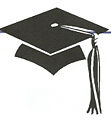Jewish Education/Passover Seder 2010
Contents
Passover Seder (2010)
(Bella's Alternative (Virtual) Passover Seder)
What You Will Need
- A computer - able to see video, and hear sound
- A telephone line (speaker phone) - optional
- A kipa or head-covering
- A glass of wine
- Some basic materials
- seder plate
- harboiled egg
- salt water
- parsley
- orange (i.e., an orange on a seder place is like a fish on a bicycle)
- matzoh
- horseradish
- beet (lamb-shank) or tofu-on-a-stick
- The capacity to share and reflect
- A sense of humour
Reflection
- You Don't Have to Be Jewish to Appreciate Passover's Message, in Vancouver Sun. Retrieved March 29, 2010 from http://www.vancouversun.com/entertainment/movie-guide/have+Jewish+appreciate+Passover+message/2733882/story.html
Overview
The Passover Seder ("order, arrangement") is a Jewish ritual feast that marks the beginning of the Jewish holiday of Passover. The seder is held on the evening of the 14th day of Nisan on the Hebrew calendar (late March or April according to the Gregorian calendar). The Seder is a ritual performed by a commThe Passover Seder (Hebrew: סֵדֶר [ˈsedeʁ], "order, arrangement") is a Jewish ritual feast that marks the beginning of the Jewish holiday of Passover. The seder is held on the evening of the 14th day of Nisan on the Hebrew calendar (late March or April according to the Gregorian calendar).
The Seder is a ritual performed by a community or by multiple generations of a family, involving a retelling of the story of the liberation of the Israelites from slavery in ancient Egypt. This story is in the Book of Exodus (Shemot) in the Hebrew Bible. The Seder itself is based on the Biblical verse commanding Jews to retell the story of the Exodus from Egypt: "And you shall tell it to your son on that day, saying, 'Because of this God did for us when He took me out of Egypt.'" (Exodus 13:8) Traditionally, families and friends gather in the evening to read the text of the Haggadah, an ancient work derived from the Mishnah (Pesahim 10).
The Haggadah contains the narrative of the Israelite exodus from Egypt, special blessings and rituals, commentaries from the Talmud, and special Passover songs. Seder customs include drinking four cups of wine, eating matza and partaking of symbolic foods placed on the Passover Seder Plate. The Seder is performed in much the same way by Jews all over the world.
- See: Passover Seder (Wikipedia)
- See also: Passover Haggadah (WikiPedia)
Seder
- Getting Started: Passover Rap
- Matzo Man
- Mahnisthana (4 Questions) Robots and Passover
- Mah nishtanah ha-lahylah ha-zeh mi-kol ha-layloht, mi-kol ha-layloht? Why is this night different from all other nights?
- She-b'khol ha-layloht anu okhlin sh'ar y'rakot, sh'ar y'rakot. Ha-lahylah ha-zeh, ha-lahylah ha-zeh, maror? Why is it that on all other nights we eat all kinds of herbs, but on this night we eat only bitter herbs?
- She-b'khol ha-layloht ayn anu mat'bilin afilu pa'am echat, afilu pa'am echat. Ha-lahylah ha-zeh, ha-lahylah ha-zeh, sh'tay p'amim? Why is it that on all other nights we do not dip our herbs even once, but on this night we dip them twice?
- She-b'khol ha-layloht anu okhlin bayn yosh'bin u'vayn m'soobin, bayn yosh'bin u'vayn m'soobin. Ha-lahylah ha-zeh, ha-lahylah ha-zeh, koolanu m'soobin? Why is it that on all other nights we eat either sitting or reclining, but on this night we eat in a reclining position?
Moving through the Story
- Option 1 - Hershel Presents the 10 Plagues (a bit long)
- Michael Jackson - Earth Song (New Plagues)
- Let My People Go (Paul Robeson)
- Who Let the Jews Out
Humour
- Happy Passover from Israel from the robots of the R&D Institute for Intelligent Robotic Systems CS Department, College of Management Academic Studies, ISRAEL.
